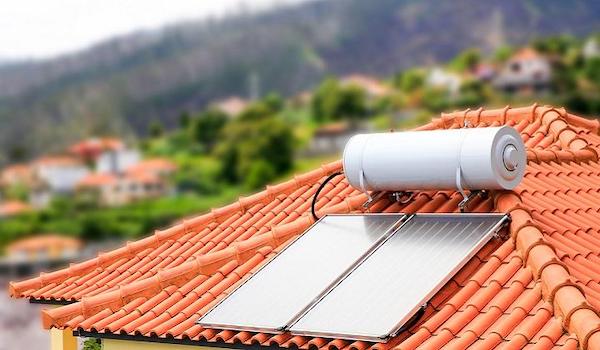Water heating systems are a vital component of modern living, providing us with the luxury of hot water on demand. Yet, despite their importance, there are still many mythical beliefs surrounding these systems that have been passed down through generations.
These misconceptions often lead to confusion and can even affect the performance and efficiency of water heating systems. In this article, we will debunk some of the most common and persistent myths surrounding water heating systems, providing readers with accurate and reliable information.
From the idea that turning off your water heater while on vacation will save money to the belief that tankless water heaters are always more energy-efficient, we will delve into the truth behind these claims.
As a society, it is important to have a thorough understanding of the technology and appliances that we rely on every day, and by dispelling these myths, we hope to promote a more informed approach to water heating systems. Let us separate fact from fiction and gain a deeper understanding of these essential household systems.

Debunking common misconceptions about water heaters
There are several common myths of water heaters that often lead homeowners astray when it comes to their understanding and maintenance. One such misconception is the belief that turning up the temperature on the water heater will result in faster hot water delivery.
In reality, adjusting the temperature setting does not affect the speed at which hot water reaches the faucet; it only determines the maximum temperature of the water. Another myth is that tankless water heaters are always the more energy-efficient option compared to traditional tank-style heaters.
While tankless heaters can be more efficient for certain households, factors such as usage patterns and household size play a significant role in determining the most suitable option. It is essential to separate fact from fiction when it comes to water heaters to make informed decisions and ensure optimal performance and energy efficiency in your home.
Separating fact from fiction: water heating systems
When it comes to separating fact from fiction regarding water heating systems, it is important to dispel certain beliefs and understand the realities. One common misconception is that regularly flushing the water heater is unnecessary.
In reality, sediment buildup can occur over time, impairing the efficiency and performance of the system. Flushing the water heater annually can help remove sediment and maintain its optimal functioning. Another myth is that tankless water heaters always provide endless hot water.
While tankless systems do not have a storage tank, their capacity is still limited, and multiple simultaneous hot water demands can strain their capabilities. Understanding these facts can guide homeowners in making informed decisions about their water heating systems and ensuring efficient and reliable hot water supply.
The truth behind energy-saving myths
To maximize energy efficiency and reduce utility bills, it is important to separate fact from fiction when it comes to energy-saving myths related to water heating systems. One popular misconception is that leaving the water heater on all day, even when not in use, saves energy.
In reality, this practice can lead to unnecessary energy consumption and higher costs. It is more efficient to use a timer or programmable thermostat to schedule the water heater to heat water only when needed. Another myth is that turning up the thermostat on the water heater will result in faster hot water delivery.
However, this only increases energy usage and does not significantly impact the time it takes for hot water to reach the faucet. By understanding these truths and implementing energy-saving practices, homeowners can effectively reduce their energy consumption and contribute to a greener and more sustainable future.
Dispelling outdated beliefs about hot water
When it comes to hot water systems, it is important to dispel outdated beliefs that can lead to misinformation and inefficiency. One common misconception is that letting the hot water faucet run for a few minutes before use will result in hotter water.
However, modern water heating systems, especially tankless models, provide instant hot water without the need for preheating. Additionally, some believe that keeping the water heater temperature at its highest setting will prevent bacteria growth.
In reality, water heaters are designed to maintain a safe temperature to prevent bacterial growth without the need for excessive heat. By understanding these facts and implementing proper usage practices, homeowners can optimize the efficiency and effectiveness of their water heating systems.
Clearing up confusion about efficient heating
Efficiency in heating systems is a topic that often generates confusion and misconceptions. One common myth is that closing vents in unused rooms will increase efficiency by redirecting heat to other areas. However, modern heating systems are designed to distribute heat evenly throughout the house and closing vents can actually disrupt this balance, leading to reduced efficiency and potential damage to the system.
Another misconception is that keeping the thermostat at a consistently high temperature will heat the house faster. In reality, the heating system operates at a consistent rate, regardless of the temperature setting, and setting the thermostat higher only results in unnecessary energy consumption and higher utility bills. By understanding the proper usage and functions of heating systems, homeowners can optimize efficiency, reduce energy waste, and maintain comfort in their homes.
Overall, while there may be many myths surrounding water heating systems, it is important to rely on accurate information and professional advice when making decisions about your own system.
By understanding the science behind water heating and regularly maintaining your system, you can avoid falling for these mythical beliefs and ensure the efficiency and longevity of your water heating system. Remember to always consult a qualified professional for any issues or concerns with your water heating system.
Read More:

